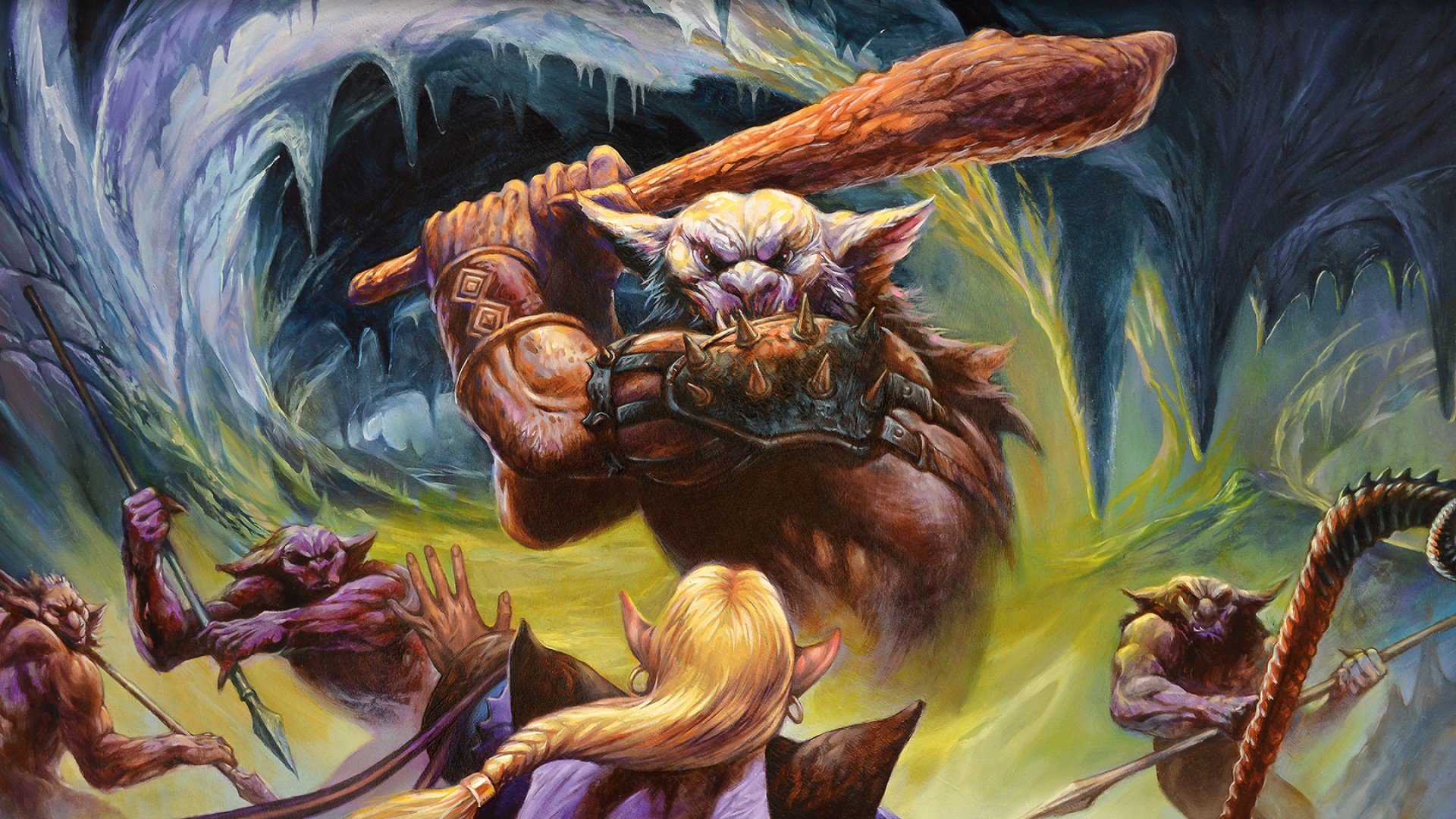Languages dnd 5e – Languages in Dungeons & Dragons 5e play a pivotal role in enhancing roleplaying, world-building, and character development. With a wide range of common, uncommon, exotic, and secret languages, players can immerse themselves in the rich tapestry of the D&D universe.
From the bustling streets of Waterdeep to the ancient ruins of Chult, languages serve as a bridge between cultures, unlocking secrets and enriching the gameplay experience.
Languages and their Effects in Dungeons & Dragons 5e
Languages are an important part of the Dungeons & Dragons 5e game. They allow characters to communicate with each other, understand the world around them, and interact with different cultures.
There are many different languages in D&D 5e, each with its own unique history and culture. Some of the most common languages include Common, Dwarvish, Elvish, and Giant.
Mechanical Benefits and Drawbacks of Knowing Different Languages
Knowing different languages can provide characters with a number of mechanical benefits. For example, characters who speak the language of a creature they are trying to communicate with can gain advantage on Charisma checks to interact with that creature.
Additionally, characters who can read and write in a language can gain access to information that would otherwise be unavailable to them. For example, a character who can read Dwarvish might be able to find a hidden treasure map or learn about a secret society.
However, there are also some drawbacks to knowing different languages. For example, characters who speak a language that is not common might have difficulty finding people to communicate with.
Additionally, characters who are known to speak a certain language might be targeted by enemies who are interested in learning that language.
Languages and Roleplaying
Languages can also play a significant role in roleplaying. By speaking different languages, characters can create unique and memorable interactions with each other and with the world around them.
For example, a character who speaks Elvish might be able to convince an elf to help them on their quest, or a character who speaks Giant might be able to negotiate with a group of giants.
Languages and World-Building
Languages can also be used to help build the world of your D&D 5e campaign. By creating unique languages for different cultures, you can make your world feel more immersive and realistic.
Additionally, you can use languages to create puzzles and challenges for your players. For example, you might create a riddle that can only be solved by someone who can read a certain language.
Common and Uncommon Languages in D&D 5e
In the vast and diverse world of Dungeons & Dragons, language plays a crucial role in communication and understanding. From the bustling streets of Waterdeep to the ancient ruins of Omu, countless languages are spoken, each with its own history and significance.
Among these, some languages stand out as more prevalent or useful than others.
Most Common Languages
The most common languages in D&D 5e are those spoken by the major races and civilizations of the Forgotten Realms. These languages include:
| Language | Speakers | Regions |
|---|---|---|
| Common | Humans, halflings, dwarves, elves, gnomes | All |
| Dwarvish | Dwarves | Underdark, mountain ranges |
| Elvish | Elves | Forests, woodlands |
| Giant | Giants | Mountains, hills |
| Goblin | Goblins | Forests, caves |
| Halfling | Halflings | Forests, hills |
Common is the most widely spoken language, used by people of all races and backgrounds. It is the language of trade, diplomacy, and everyday communication.
Most Useful Languages for Adventurers
For adventurers, the most useful languages to learn are those spoken by the people and creatures they are likely to encounter. This includes Common, as well as the languages of the major races and factions in the campaign setting.
Learning the language of a particular race or faction can provide several benefits:
- Improved communication:Speaking the language of the people you are interacting with can help you build rapport, avoid misunderstandings, and gain valuable information.
- Access to hidden knowledge:Some texts and documents are written in specific languages, so learning those languages can give you access to secret knowledge or ancient lore.
- Negotiation and diplomacy:Knowing the language of the other party in a negotiation or diplomatic encounter can give you an advantage, as you can communicate more effectively and understand their motivations.
Benefits of Learning Uncommon Languages, Languages dnd 5e
While the common and major languages are essential for adventurers, there are also benefits to learning uncommon languages. These languages are often spoken by less common races or creatures, and knowing them can give you a unique advantage.
For example, learning the language of the Aarakocra can allow you to communicate with these winged humanoids and gain insights into their culture and customs. Knowing the language of the Beholders can help you decipher their cryptic speech and potentially avoid their deadly gaze.
Ultimately, the languages you choose to learn should depend on the campaign setting, the adventures you are embarking on, and your character’s background and interests.
Exotic and Secret Languages in D&D 5e
Exotic languages are those spoken by ancient or obscure civilizations, hidden societies, or creatures that are not typically encountered in the common world. These languages often have unique scripts, pronunciations, and grammatical structures that make them difficult for outsiders to learn.
Some of the most exotic languages in D&D 5e include:
Abyssal
Abyssal is the language of demons and devils. It is a harsh and guttural language that is difficult to speak for those who are not native to the Abyss. Those who can speak Abyssal are often able to communicate with demons and devils, and may even be able to command them.
Celestial
Celestial is the language of angels and other celestial beings. It is a beautiful and melodic language that is spoken with great reverence. Those who can speak Celestial are often able to communicate with angels and other celestial beings, and may even be able to call upon their aid.
Draconic
Draconic is the language of dragons. It is a complex and ancient language that is spoken with great pride. Those who can speak Draconic are often able to communicate with dragons, and may even be able to negotiate with them.
Infernal
Infernal is the language of devils. It is a fiery and seductive language that is spoken with great cunning. Those who can speak Infernal are often able to communicate with devils, and may even be able to make deals with them.
Primordial
Primordial is the language of the elemental planes. It is a powerful and chaotic language that is spoken with great reverence. Those who can speak Primordial are often able to communicate with elementals, and may even be able to control them.
Sylvan
Sylvan is the language of fey creatures. It is a musical and poetic language that is spoken with great grace. Those who can speak Sylvan are often able to communicate with fey creatures, and may even be able to gain their favor.
Undercommon
Undercommon is the language of the Underdark. It is a guttural and earthy language that is spoken with great familiarity. Those who can speak Undercommon are often able to communicate with creatures that live in the Underdark, and may even be able to find their way around its treacherous tunnels.Exotic
languages can add depth and mystery to campaigns. They can be used to create secret societies, hidden civilizations, and ancient artifacts. They can also be used to communicate with creatures that are not typically encountered in the common world. By learning exotic languages, players can gain access to new worlds and adventures.
Creating Custom Languages for D&D 5e: Languages Dnd 5e

Custom languages add depth and immersion to D&D 5e campaigns. To create one, consider the following:
Developing Alphabets
Create a unique alphabet that fits the language’s aesthetic and setting. Consider:
- Phonetics:The alphabet should represent the sounds used in the language.
- Origin:Draw inspiration from real-world languages or invent your own symbols.
- Readability:Ensure the alphabet is easy to read and write for players.
Establishing Grammar
Define the language’s grammatical rules, including:
- Syntax:The order of words and phrases in sentences.
- Morphology:How words change form to indicate meaning (e.g., pluralization).
- Phonology:The sounds used in the language and how they combine.
Building Vocabulary
Develop a comprehensive vocabulary that covers common concepts and terms. Consider:
- Etymology:Create words that have logical or thematic connections to their meanings.
- Cultural Context:Include words that reflect the language’s setting and culture.
- Unique Terms:Invent new words for concepts that don’t exist in other languages.
Examples of Custom Languages
Custom languages can enhance gameplay by adding:
- Secrecy:Secret languages allow characters to communicate privately.
- Immersion:Languages unique to specific cultures or races deepen the game’s world-building.
- Puzzles:Encrypted messages or ancient texts can provide challenges for players.
Using Languages in D&D 5e Roleplaying
Languages play a vital role in enhancing the roleplaying experience in Dungeons & Dragons 5e. They allow players to create diverse characters, foster immersive interactions, and create memorable experiences.
Incorporating Languages into Dialogue and Interactions
Incorporating languages into dialogue and interactions adds depth and realism to roleplaying. When characters speak in their native tongues, it reflects their cultural backgrounds and adds authenticity to their interactions. Players can use languages to convey secret messages, establish connections with NPCs, and create a sense of mystery and intrigue.
Creating Immersive and Memorable Experiences
Languages can create immersive and memorable experiences by transporting players to different cultures and civilizations. When players interact with characters who speak different languages, they gain insights into their beliefs, customs, and perspectives. This enriches the roleplaying experience and fosters a sense of connection to the game world.
Languages and Cultural Diversity in D&D 5e

Languages in Dungeons & Dragons 5e (D&D 5e) extend beyond mere communication tools. They serve as vibrant reflections of the diverse cultures and backgrounds that enrich the game world. Creating languages that embody distinct cultural identities enhances world-building and fosters inclusivity, allowing players to immerse themselves in a richly textured realm.
Representing Cultural Diversity
Languages in D&D 5e can represent cultural diversity in various ways. They can embody:
- Distinct vocabulary:Words and phrases unique to a culture, reflecting its values, beliefs, and customs.
- Grammatical structures:Sentence construction and syntax that differ from common languages, showcasing cultural perspectives.
- Dialects and accents:Regional variations within a language, reflecting geographical and social divisions.
- Nonverbal communication:Gestures, body language, and facial expressions that convey cultural nuances.
Last Point

Whether creating custom languages or incorporating existing ones into roleplaying, languages in D&D 5e offer a boundless opportunity for creativity and storytelling. They add depth, diversity, and authenticity to the world, making it a truly immersive and unforgettable experience.
Query Resolution
What are the most common languages in D&D 5e?
Common, Dwarvish, Elvish, and Halfling are the most commonly spoken languages in the D&D 5e setting.
Why is it important to learn uncommon languages in D&D 5e?
Uncommon languages can provide access to hidden lore, secret societies, and unique interactions with NPCs.
How can I create a custom language for my D&D 5e campaign?
Consider the alphabet, grammar, vocabulary, and cultural context when creating a custom language to enhance the immersion and authenticity of your campaign.